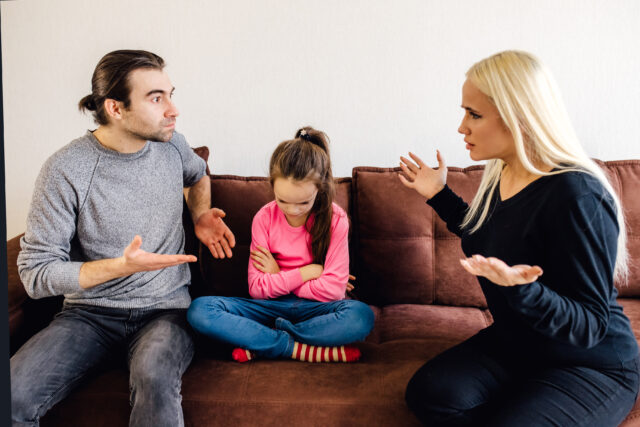Growing up in a dysfunctional family can feel like living in a house with crooked walls and creaky floors—everything seems just a little off-kilter. Whether your childhood home was filled with constant conflict or shrouded in silent tension, those experiences can leave lasting marks on your emotional landscape. If you’re wondering if your upbringing was less than ideal, here are some signs that might resonate with you.
1. You avoid expressing your true opinions.

Maybe you keep quiet instead of disagreeing with someone in a meeting. Or you nod along with a friend’s opinion even if you don’t genuinely feel the same way. While a little diplomacy is important, constantly censoring your true thoughts might be a sign you’re afraid of being judged or disliked if people knew what you really believed.
2. Silence feels like a safe haven.

Remember those awkward family dinners where everyone pretended everything was fine? Maybe you’ve got so used to sweeping problems under the rug that silence feels more comfortable than open communication. While a little peace and quiet is healthy, avoiding tough conversations altogether can prevent you from forming deeper connections with people.
3. You struggle to trust your own judgment.

If you grew up in a household where your feelings were dismissed or invalidated, you might have a hard time trusting your own instincts. Maybe you second-guess yourself constantly or seek reassurance from other people before making even minor decisions. Remember, your feelings are valid, and your intuition is often trying to tell you something important.
4. You feel responsible for everyone else’s happiness.

Did you often feel like you had to walk on eggshells to avoid upsetting your parents or siblings? If so, you might have developed a habit of prioritising other people’s needs over your own. While empathy and compassion are admirable qualities, constantly putting yourself last can lead to burnout and resentment.
5. You have a hard time setting boundaries.

Maybe you struggle to say “no” to requests, even when you’re feeling overwhelmed or exhausted. Or perhaps you find it difficult to express your needs and preferences clearly. However, as Psychology Today notes, learning to set healthy boundaries is crucial for protecting your emotional well-being and maintaining healthy relationships.
6. You’re drawn to chaotic or unhealthy relationships.

If your childhood home was a tumultuous environment, you might unconsciously seek out similar dynamics in your adult relationships. While it’s important to acknowledge that not everyone from a dysfunctional family follows this pattern, it’s worth examining whether you’re drawn to drama or conflict as a way of recreating familiar patterns.
7. You constantly seek external validation.

Growing up in a family where love and approval felt conditional can leave you craving affirmation from anyone who will give it to you. Maybe you rely on compliments, achievements, or social media likes to feel good about yourself. Remember, your worth comes from within, not from external sources.
8. You feel like you’re always waiting for the other shoe to drop.

Did you grow up in a household where good times were often followed by conflict or upheaval? If so, you might have developed a sense of anxiety and anticipation, always waiting for the next bad thing to happen. This can make it difficult to relax and enjoy the present moment.
9. You struggle with intimacy and vulnerability.

If emotional closeness was rare or unpredictable in your family of origin, opening up to people might feel like a risky proposition. Maybe you keep people at arm’s length or avoid sharing your true feelings, even with those you love. Remember, vulnerability is not a weakness; it’s a strength that allows you to form deeper connections.
10. You find it difficult to relax and have fun.

Growing up in a stressful environment can make it hard to let your guard down and enjoy life’s simple pleasures. Maybe you feel guilty for taking time for yourself or worry that something bad will happen if you’re too happy. Remember, you deserve to experience joy and relaxation, and it’s okay to prioritise your own well-being.
11. You’re hyper-vigilant and always on alert.

If you grew up in a chaotic or unpredictable household, you might have developed a heightened sense of awareness, always scanning your surroundings for potential threats. While this can be a useful survival mechanism, it can also lead to anxiety, exhaustion, and serious trust issues.
12. You have a deep-seated fear of abandonment.

Did you experience neglect, rejection, or inconsistent caregiving in your childhood? If so, you might have developed a fear of being left alone or unloved. This can manifest as clinginess, jealousy, or a tendency to sabotage relationships before they have a chance to end. Remember, you are worthy of love and connection, and it’s possible to build healthy relationships based on trust and mutual respect.




